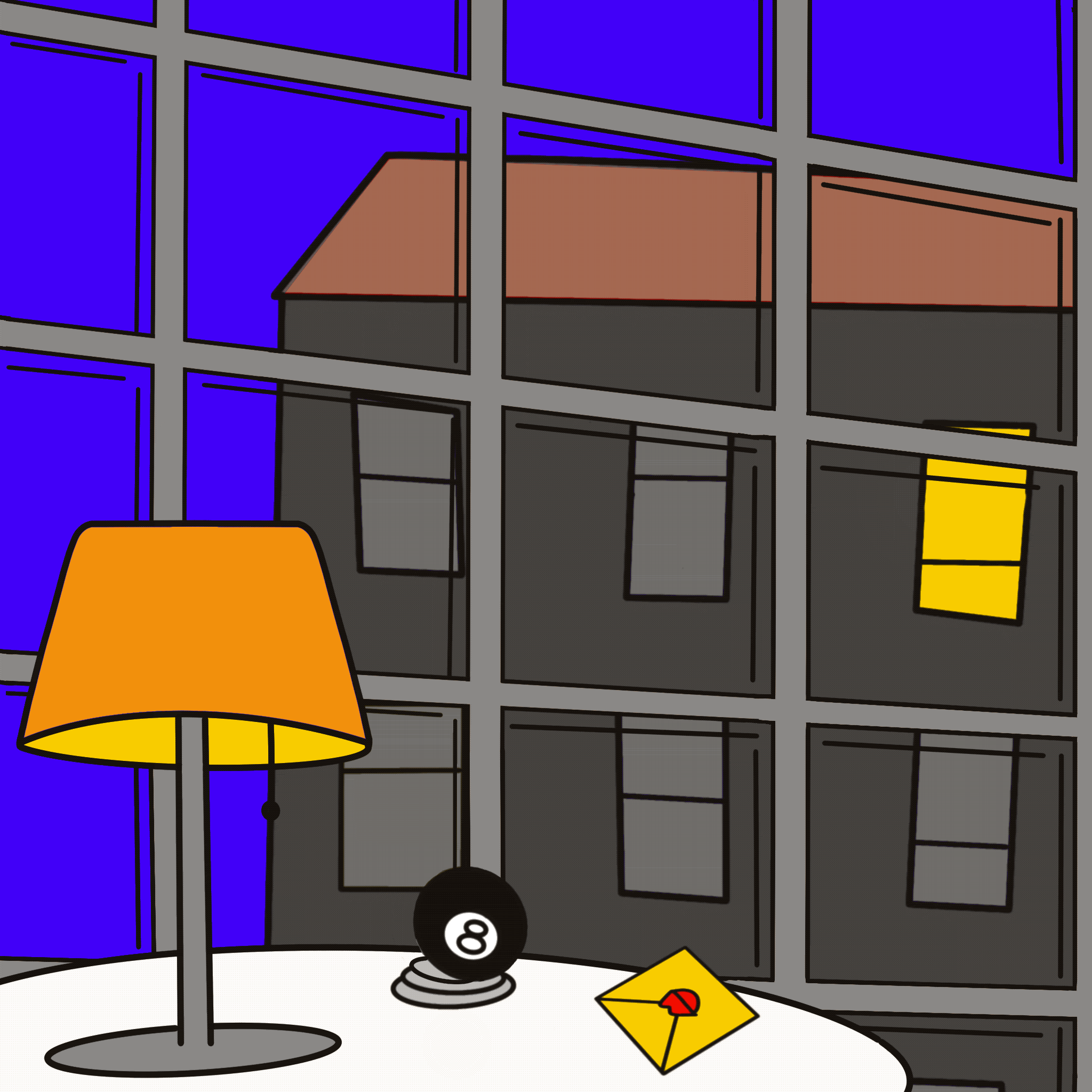Brijean's
love letter to
Victor
Pivovarov

Brijean Murphy is a musician, DJ and illustrator based in Oakland. Having worked as a session and touring musician with the likes of U.S. Girls, Toro y Moi and Poolside, in 2018 she teamed up with musician and producer Doug Stuart and they began the project now known as Brijean. Their debut album, the brilliantly upbeat and uninhibited 'Feelings' is released on Ghostly International this week. For Hook's Love Letters series, she wrote to us about one of her favourite artists, the Russian conceptualist Victor Pivovarov, and produced an original illustration inspired by his work.
Viktor Pivovarov was one of the founders of the underground art movement Moscow Conceptualism in the 1960s. In the 1990s he unveiled a series of paintings under the name Apartment 22.
I first saw his work in 2018, while touring through London. I was struck by "Radio Moscow." I remember consciously and slowly moving my eyes over every line and color block of the painting, examining the crisp and bold lines—lured by the saturated colors drawing me close—almost as if I could step in, as if I were the other half; the missing piece. The enamel painting on canvas depicts a modest room. The view through a half-opened door to the outside is people-less, exposing an imaginably similar apartment building devoid of life. It feels oddly comforting to me, knowing the ubiquity of limitedly visible existence within four walls.
Every year when playing in London I made a point to go back and see that painting. Spending most of my time at the museum in front of it. It fed and inspired me on both a visual and existential level. What more could I learn from it? Why did I feel so connected to this particular painting? The last day I saw that painting was in March of 2020, just before the last show I played, before the lockdown.
When returning home, to an empty home, I continued to think about this painting - and about shared experiences of loneliness, boredom, domestication and isolation. I began looking into Pivavorov's life and what inspired his work in Apartment 22. In an interview with the Tate Modern he spoke about his experience growing up in a post-war Soviet Union, about creating a fictional diary of invented characters depicted in his series, and exploring the 'private lives of fictional Russian citizens forced to undergo communal living'. He wrote: 'the stronger the pressure from the outside, the greater the intensity of inner life' and described his characters as experiencing the 'fourth level of loneliness … the attaining of a true freedom and the joining with the infinite.' In the 11th month of isolation in this pandemic I feel even more respectful of this work and this artist, as I examine the lonesomeness and intensity of the inner life.
-Brijean



